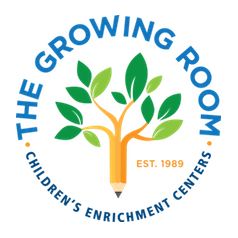Do children who participate in afterschool enrichment programs acquire increased social skills and social/emotional competence?
The short answer is “Yes”. Decades of research across interrelated educational fields confirm that children who participate in afterschool programs reap a host of positive benefits. In addition to improved academic skills, interrelated outcome areas also include prevention, health and wellness, and social/emotional competencies. Recently, studies exclusively exploring the connection between afterschool program participation and improved social competencies document a wide range of pro-social outcomes, including: improvements in peer relationships, sense of self-worth, altruism, self-control, and intrinsic motivation.
Youth enrolled in high quality programs are more likely to see positive outcomes. How social/emotional competence is achieved during afterschool program participation rests on three key factors: quality programming and staffing, frequency of youth participation, and strong local partnerships.
Quality of Program and Staffing
A program that offers a well-organized, active form of learning is the key. The curriculum should also provide a focused component on personal skill development that fosters peer-to-peer engagement. Interpersonal engagement is what facilitates high quality social/emotional learning outcomes. Programs that offer classes with a sequenced set of activities (designed to achieve interactive skill development objectives) such as STEAM curriculum, music and language instruction, chess club, homework labs, and organized athletic participation provide opportunities for interpersonal communication. These types of classes target explicit personal or social skills as part of the learning outcome. This curriculum yields a wide range of significant positive pro-social outcomes, including self-efficacy, self-regulation, intrinsic motivation, empathy, self and social awareness, and relationship management skills. These acquired skills lead to an increased sense of accomplishment.
Structure is also important. Programs with a good teacher-student ratio are important. Youth concentrated together without adequate supervision will not provide the environment for pro-social learning outcomes. In programs where staff models positive behavior, provides individual and guided feedback, actively listens, and are enthusiastic about their chosen subjects, positive peer-to-peer relationships are more likely to occur. Additionally, staff that establishes clear expectations for mature respectful peer interactions will see increased social skills among their students.
Sustained Participation
Much as participation gaps influence academic, musical, or athletic outcomes for youth, gaps in afterschool program participation also impacts the pro-social benefits. Research indicates that students experience greater social/emotional gains if they participate regularly and with greater frequency (more days a week) in their afterschool program. This also includes participating in a sustained manner over a number of years. Youth who participate at a higher level are more comfortable seeking and maintaining new friendships. The increased opportunity to socialize in a positive environment outside of school not only results in improved relationships with peers, but in a sense of belonging. High participation also allows stronger interpersonal relationships with adults. Youth who participate more extensively establish closer connections with teachers and adult mentors than their less engaged peers. Strong and sustained participation allows youth to develop a strong identity within the program, which leads to a sense of self-assuredness. High-level participants are also likely to find more enjoyment in the programs, be more actively engaged, and have greater learning outcomes.
Strong Partnerships
Afterschool programs, that effectively develop and establish strong partnerships with supporting team members such as local schools, families, and community business, reinforce pro-social learning outcomes. Providing a bridge between home and school, while supporting other community businesses, contributes to a child’s social development in both his/her micro and macro environment.
Children who develop social/emotional competence possess the tools they need to succeed in the classroom and beyond. Quality afterschool programs provide a vehicle for youth to feel connected to each other, teachers/mentors, and their community. Strong emotional/social skills are the cornerstones for self-confidence, self-awareness, and empathy, and provide the foundational leadership skills for future generations.


